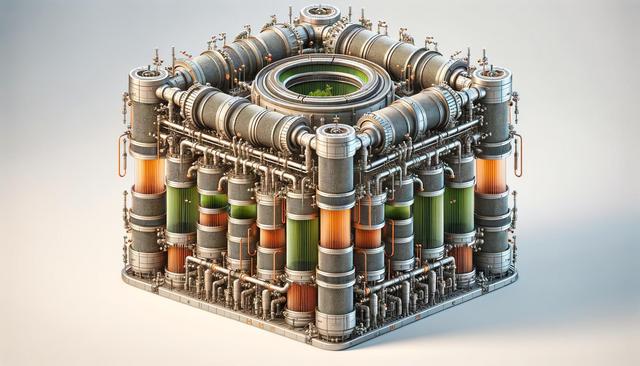Understanding Magnetic Filtration Technology
Magnetic filtration is a process that utilizes powerful magnetic fields to separate ferrous particles and other magnetic contaminants from fluids. Unlike traditional filters that rely on physical barriers, magnetic filtration systems use magnets to attract and capture unwanted particles. This method is particularly effective in industrial environments where metal debris, wear particles, and sludge can compromise machinery and fluid integrity. The technology operates without the need for consumable filter media, offering a sustainable and cost-efficient solution for fluid maintenance.
These systems are designed with high-performance magnets that create a dense magnetic field within the fluid path. As the fluid passes through, ferrous contaminants are drawn to the magnetic surfaces and held in place, allowing clean fluid to continue flowing. This type of precision separation not only improves the quality of the fluid but also extends the lifespan of machinery and equipment by reducing abrasive wear.
Applications Across Industrial Settings
Magnetic filtration systems are widely used across a range of industries, each benefiting from cleaner fluids and reduced equipment maintenance. They are commonly found in:
- Automotive manufacturing lines
- Metalworking and machining operations
- Hydraulic systems and power units
- Oil and gas processing plants
- Food and beverage production
In these environments, maintaining fluid cleanliness is critical to ensure operational efficiency and minimize downtime. Contaminants such as iron filings, rust particles, and machining debris can cause significant wear and lead to system failures if not effectively removed. By integrating magnetic filtration systems, industries can achieve higher levels of fluid purity and protect their most valuable assets.
Efficiency and Environmental Impact
One of the key advantages of magnetic filtration is its ability to operate with minimal environmental impact. Traditional filtration systems often rely on disposable filter elements that need regular replacement, contributing to waste and increased operational costs. In contrast, magnetic filters are reusable and require only periodic cleaning, significantly reducing the environmental footprint.
Additional benefits of magnetic filtration include:
- Lower operating costs due to reduced filter replacement
- Improved energy efficiency through cleaner system operation
- Reduced fluid disposal and replacement rates
- Enhanced product quality by eliminating contamination risks
These efficiencies make magnetic filtration an attractive option for organizations aiming to align with sustainability goals while maintaining high performance.
Maintenance and System Longevity
Proper maintenance of filtration systems is essential for long-term performance. Magnetic filters are relatively low-maintenance compared to conventional ones. Most systems are designed for easy access, allowing for quick cleaning and inspection. The captured contaminants can be removed by wiping or flushing, depending on system design.
Routine maintenance checks should include:
- Regular inspection of magnetic elements
- Monitoring fluid flow and pressure levels
- Scheduled cleaning intervals based on contamination levels
- Checking for wear or degradation in magnetic surfaces
By maintaining these systems proactively, industrial operators can ensure consistent filtration performance and extend the service life of both the filter and the machinery it protects.
Selecting the Right Magnetic Filtration System
Choosing the appropriate magnetic filtration system involves understanding the specific requirements of the operation. Factors such as fluid type, flow rate, contamination load, and space constraints play a role in selecting a suitable unit. Customizable options are available to meet the diverse needs of different industries, ensuring optimal compatibility and performance.
When evaluating systems, consider:
- The strength and configuration of the magnetic field
- Compatibility with fluid temperatures and chemical properties
- Ease of installation and integration with existing systems
- Maintenance accessibility and safety features
Consulting with a filtration specialist can help match the right system to the application, providing long-term operational benefits and ensuring a high return on investment.
Conclusion: Enhancing Efficiency Through Cleaner Fluids
For industries that rely on fluid systems to maintain productivity and equipment reliability, magnetic filtration offers a highly effective solution. By delivering precision separation of contaminants, these systems help maintain fluid purity, reduce maintenance costs, and support sustainable operations. Investing in magnetic filtration is not only a practical measure for protecting equipment but also a forward-thinking step toward improving overall efficiency and environmental responsibility across industrial processes.




Leave a Reply